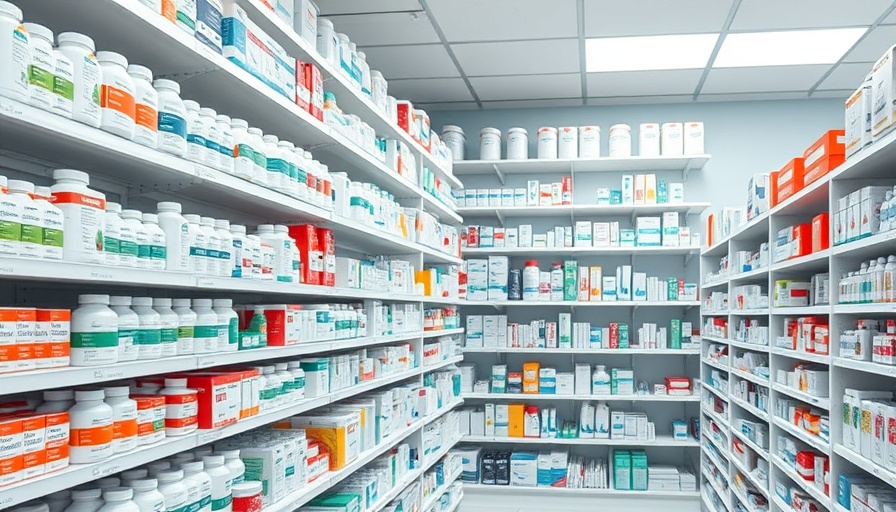
Pharmacies Brace for Impact Amidst Potential Tariffs on Drugs
As tensions rise over potential tariffs on pharmaceuticals, independent pharmacies across the United States are taking proactive measures. In Salt Lake City, pharmacist Benjamin Jolley has stockpiled six months’ worth of essential prescription drugs. His initiative reflects a broader concern among pharmacists that such tariffs could disrupt the delicate balance of drug supply and affordability.
Understanding the Rationale Behind Tariffs
The concept of enforcing tariffs to push pharmaceutical manufacturing back onto American soil is rooted in national safety. However, independent pharmacists like Jolley express skepticism about the effectiveness of this approach. While he recognizes the principle of creating a crisis-proof supply chain, he also fears that lofty tariffs could lead to higher drug costs and exacerbate existing shortages.
The Wider Implications of Tariffs on Pharmaceuticals
With the U.S. heavily reliant on pharmaceutical imports, particularly from China and India, the introduction of tariffs could stifle accessibility to many essential medications. Experts warn that cutting imports could trigger significant shortages in the American market, escalating health concerns among patients who rely on timely access to their medications.
The Current Landscape of Pharmaceutical Manufacturing
President Trump’s recent executive orders and plans to impose tariffs have sent the drug industry into a state of uncertainty. The pharmaceutical sector, known for its complexity and reliance on a global supply chain, could face prolonged repercussions if manufacturers begin to withdraw from markets due to tariff pressures. While the intention may be to lower drug costs for consumers, the reality is that these measures may have the opposite effect if not executed thoughtfully.
Staying Informed and Prepared Amid Uncertainty
The evolving landscape around drug tariffs offers an opportunity for patients and healthcare professionals alike to stay informed about the potential impacts on medication availability and pricing. By understanding these dynamics, consumers can better navigate their healthcare choices and advocate for policies that prioritize accessibility and affordability in the pharmaceutical market.
At this critical juncture, individuals must engage in discussions around healthcare policy and its implications to ensure their voices are heard. Informed patients lead to a healthier public discourse that ultimately benefits everyone.
 Add Row
Add Row  Add
Add 




 Add Row
Add Row  Add
Add 



Write A Comment